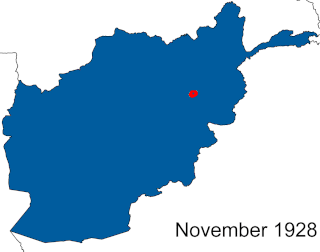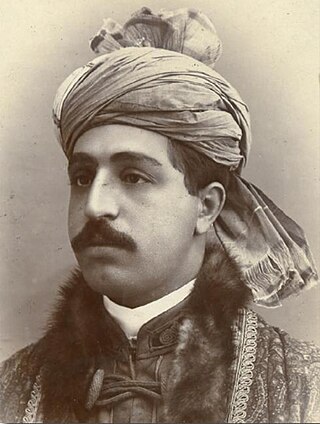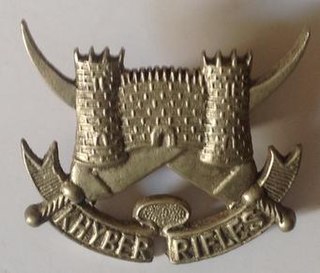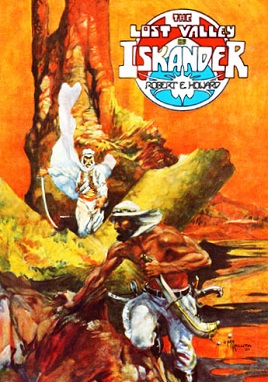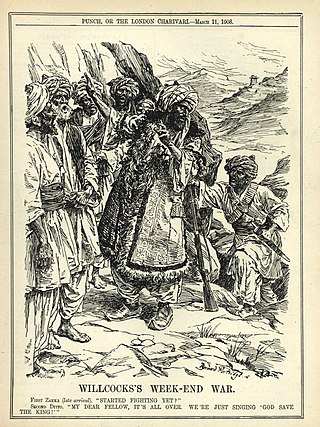Plot summary
The story begins with El Borak climbing a cliff-face to escape pursuit. Afdal Khan, the chief of the Orakzai, had invited the Afridis and their ally El Borak to a feast before swiftly attacking and slaughtering the chiefs of the other tribe. El Borak was the only survivor.
The focus shifts to Geoffrey Willoughby some time later. Willoughby is a British diplomatic agent who, along with secret service agent Suleiman, has been sent to quell violence in Afghanistan. El Borak has led the Afridis in a successful tribal war against the Orakzai (later revealing that he adapted Apache tactics to do so). The British agents have been escorted by Baber Ali, the uncle of Afdal Khan, to meet El Borak at a location known as Shaitan's Minaret. El Borak, however, insists that the only way the conflict would end is with Afdal Khan's death. He also suggests that the Orakzai have an ulterior motive, they are working with the Russians to take over all trade in the region, for which they needed the wells owned by the Afridis.
When Willoughby returns from the meeting unsuccessful, Baber Ali abandons them and rides away. Both agents realise that this is effectively a death sentence in Afghanistan but consider their best action to brazen it out and travel back to Fort Ghazrael with their Afghan escort. However, when camping for the night, the escort turn on them and kill Suleiman. Willoughby escapes into the wilderness but is attacked and knocked out by an unknown assailant. He wakes to find himself under fire in a cave with El Borak and a small group of Afridis. To El Borak's anger, he at first assumes that he is the Texan's prisoner. El Borak tricks Baber Ali, leading the besieging Afghans outside the cave, into revealing his intention to kill Willoughby. Too late the Orakzai realised that he would be responsible if anything happened to the British subjects and returned. When he found Suleiman dead he had no choice but to kill Willoughby as well and remove all evidence, otherwise the British government would insist on his death.
The besieged group stay in the cave until the moon sets enough to place the cave mouth in darkness. Unknown to the besiegers, there is a small rear entrance to the cave. Using a rope of belts and turbans, they individually climb down from this to a valley beyond. However, before El Borak can escape, the Afridi holding the rope is killed by attacking Orakzai. He orders the Afridi to escape because the whole opposing force could be on them shortly. It is only when he returns to the cave mouth to find it still under enemy fire that he realises that the group at the rear must have been unofficial stragglers and Baber Ali knows nothing about the escape. El Borak has trapped himself in the cave with no remaining means of escape.
When the moon has completely set, the Orakzai rush the cave under cover of darkness. El Borak, however, has fashioned his rifle into a small bomb. Distracting his enemies with an explosion he escapes into a nearby gully. He grapples with and kills the only Afghan he encounters, before stealing a horse and leaving with his enemy still completely unaware. The Afridis take Willoughby to their stronghold, Akbar's Castle, an old Mughal outpost. The garrison of the castle verbally abuse Willoughby's escort for abandoning El Borak, despite doing so at his orders, and quickly organise a rescue party. Before they can out, El Borak appears riding Baber Ali's own horse.
Willoughby, exhausted by recent events falls asleep. Again, he is woken by the sound of gunfire. Ali Baber, having deduced the events of the previous night, has again laid siege to El Borak and company, this time with a much larger force. Besieging Akbar's Castle is futile, however, and both sides are aware of it. Baber Ali nevertheless persists.
Willoughby realises that he can end everything if he can get out to Fort Ghazrael. Afdal Khan would guarantee his safe exit, because "Afdal knows he can't afford to let his clan kill an Englishman", if he could only be contacted. The British agent comes up with the idea of writing a letter but rejects it as it cannot be delivered. El Borak offers to sneak out at night, as only he can, and deliver it to the nearest Orakzai outpost. Afdal would need to turn up in person to guarantee Willoughby's safety but will not go near El Borak. This is solved by a nearby outcrop of rocks within view of El Borak's powerful telescope, in which Afdal would be visible but at a safe distance.
El Borak is gone for sometime but Willoughby spots Afdal Khan while the Texan is sleeping shortly after he returned. Willoughby goes out alone to meet the Orakzai. Shortly into their meeting, Afdal announces that although he has failed to achieve a diplomatic solution Willoughby's death will serve almost as well. He intends to kill him and blame El Borak, which will bring British and Afghan forces against him. Before killing Willoughby, Afdal confirms that he started the feud to gain control of the wells that dominate the caravan routes in the region. The Russians will pay him a lot for his assistance in smuggling arms to Afghanistan, Kashmir and India. He even believes that they will eventually make him "Amir of Afghanistan."
Just as Afdal is about to kill Willoughby, El Borak appears from hiding. Both men agree to a duel to the death with swords. The two are both skilled and fight for some time, Afdal Khan more quick and animated while El Borak maintains a steady stance. At the end, El Borak ducks the Afghan's blade and almost cuts him in two with his own. The feud ends with Afdal Khan's death just as El Borak had said it must.


